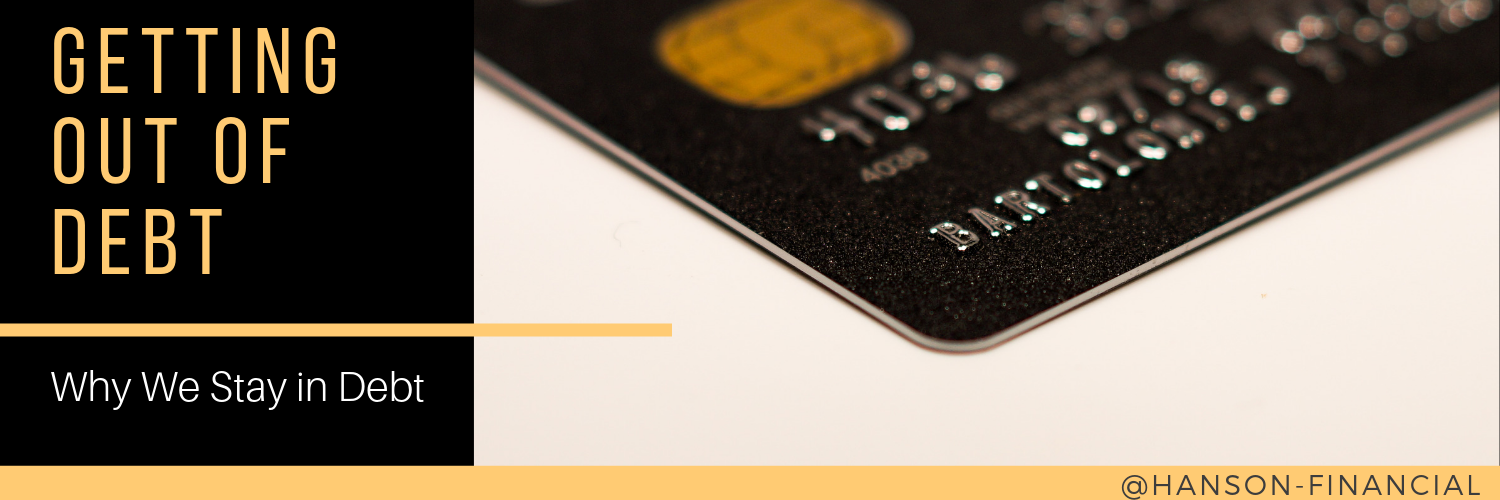
A number of factors are at play. We’ll show you a new way to look at money and make it work for you.
We already know we should be saving money, but not all savings are created equal. Here are the best places to park that money, based on what you’re saving for.
You’re not alone! It’s nearly impossible to ditch or lower a student loan. We’ll show you what it takes to beat this debt and (still) build wealth.
Use time to your advantage. The short answer is – invest today, not tomorrow. You can absolutely get rich if you take the “penny doubled” concept and use it t your advantage. We’ll show you why.
The cost of paying off high-interest debt is astronomical! We’ll explain why and show you how to take steps to reverse compound interest (the first step to debt management).
It may not be enough. The question becomes: Is deferring taxes better than paying taxes now? We’ll provide a framework to make some decisions.
You want to create wealth, right? Building wealth requires having the right information, planning and making good choices. Net worth is our wealth — the greater our assets, the greater our wealth. Our net worth is simply a number that reflects our financial choices. Calculating your net worth (wealth) is pretty straight forward. We’ll show you how.
You want to create personal wealth, right? Building wealth requires having the right information, planning and making good choices. Net worth is our wealth. Our net worth is simply a number that reflects our financial choices. Calculating your net worth (wealth) is pretty straight forward. We’ll show you how.
Are there month when you feel like all your money goes to making payments on your debt? You may have a high debt-to-income (DTI) ratio on your hands. To get your DTI ratio under better control, focus on paying down debt. We’ll show you how to calculate your DTI and what a good DTI ratio is.
Mortgage payments are generally set up here in the U.S. so each monthly payment is the same amount. This keeps housing payments more affordable (and predictable). The balance is paid off evenly over a long period of time, say 30 years. Even though the payment is fixed, principal and interest for each month will change until the loan ends. Interest on a mortgage is front loaded. This means, in the early years of the mortgage, most of the monthly payment goes to paying of interest, not principal.
How much interest will your mortgage cost you over the lifetime of your loan? This is where we can help. We’ll explain how a simple, straightforward calculation will show you year by year your real mortgage interest rate.

Why We Stay in Debt
& What Not to Do
You have a hard time keeping up with your finances. You are unsure about account balances, monthly expenses, loan interest rates, contractual obligations. This means missed payments, extra fees in overdrafts and interest.
REMEDY: Take inventory of your finances. Anyone who’s improved their money skills will tell you it’s not all about the rules. The trick is not let our guilt and shame get in the way of coming clean and working on a plan to get our finances back on track.
If you’re like most, it’s your debt that will finally make you realize you need a budget. It’s difficult – if not impossible – to gain control of finances unless we have a budget. Remember, it’s not important how we got here, it’s all about moving forward.
REMEDY: What’s your current income? The first step is to honestly analyze exactly where it’s all going. If you don’t have a line-by-line budget, creating one can be a real eye opener. And, you might discover expenses ripe for cutting. The budget you choose must cover all your needs, some of your wants, and (this is key) saving for emergencies and the future.
You live from paycheck to paycheck, take risks with health and car insurance coverage, write checks hoping the money will cover them. Credit cards are constantly “saving” you and allowing you to buy the necessary items you don’t have cash for.
REMEDY: In order to start the process, you need to be all in and refuse to live like this anymore. We don’t want you to just manage your debt, we want you to be able to live without it. It’s time to put your hard earned cash back in your pocket!
A minimum credit card payment does ONLY one thing: We pay … and we pay … and we pay … and we never pay it off.
REMEDY: Look at the “Minimum Payment Warning” on your next credit card bill. It includes a table that shows how much money and how many years you will need to pay off your balance if you pay only the minimum each month.
Do not make the mistake of thinking the minimum due is a “monthly payment” you should be paying. When we only pay the minimum payment (typically 1% of the balance plus interest), we’re only paying interest plus a tiny bit of what we owe on the card. Since the interest is the same as the minimum payment, almost all of the payment is going to pay interest. And with each swipe, credit card debt grows because the minimum payment won’t even cover the additional interest being added each month. End result? We’re deeper in debt each month even though we’re paying the minimum. Our best bet is start paying down credit card debt with the highest interest rate.
According to research, 4 in 10 Americans don’t have enough cash to cover an unexpected expense of $400 or more. If you’re living without a safety net, you’re living on the “financial” edge hoping to get by without running into a crisis.
REMEDY: Having a cushion in place when things get tough could mean the difference between a mere setback and a catastrophe. Having an emergency fund is just part of “adulting.” No one wants to live one paycheck away from a car breakdown and not being able to get to work. We suggest automating the process of saving for your emergency fund.
“Throw all your extra money toward your debt,” they say, “make sacrifices, it will be worth it.” That’s a long journey! It’s not realistic to assume we can easily give up “unnecessary” things in our life for five, ten, ore more years while we’re paying off that debt.
REMEDY: The one thing we look for when paying off debt is progress, and the debt snowball method is the fastest way to get out of debt, hands down. Start by paying off the debt with the highest interest rate until it’s eliminated, then move on to the one with the next highest interest rate, pay it off and repeat until all debts are eliminated. “Debt snowflakes” can help speed up your debt payment efforts. Any extra income you come across outside your normal budget should be used to pay off your priority debt.
Gen Xer, Millennial or Boomer – dealing with student loan debt is tough. You’re struggling to start a family, buy a home or open a business. Have you tapped into your retirement savings or Social Security payments to pay off this debt?
REMEDY: Before you throw in the towel, know that we can manage our student loans in a smarter way, pay them off faster and cheaper, and live a debt-free life. The first step is knowing what you owe (consider we often sign off on student loans without a clear understanding). Unsure? Contact National Student Loan Data System. Make a list for each student loan: type of loan, balance, interest rate, term length. Knowing these details can help you figure out what loans are costing you the most. The next step is building a strategy to pay off your student loans: debt snowball and debt avalanche
You have the shadow of a mortgage payment hanging over you for decades. 30% to 50% of your gross paycheck is taken up by mortgage costs, leaving two-thirds or less of your income to cover other things.
REMEDY: Tackle mortgage debt last. Get rid of high-interest debt, student loans and other sizable debt first. Key areas you don’t want to short change or neglect: emergency savings and retirement. You need a system in place like YFB for your goals that allows you to identify what they are, quantify them by time and value, and prioritize them.
You don’t plan for taxes, retirement or other predictable items. Balancing student loans and consumer debt is difficult, leaving you strapped for cash. Retirement savings seems like an impossible goal.
REMEDY: Time is the most powerful tool in saving for retirement. If you are deep in debt, seriously consider your situation and your options as well as the implications for your future. Find out what your bottom line numbers and results could be if you add YFB to your financial plan. If you’re still collecting a paycheck, you have solid opportunity to improve your financial picture and avoid problems during your golden years.
Signing up for a debt relief program can be risky! It’s rare to get a quick fix solution to debt problems. debt consolidation can actually increase your tab. Debt settlement may leave you deeper in debt.
REMEDY: The standard advice for dealing with debt elimination is to seek the services of a financial coach. Our team of experts is here to educate and empower you to take control of your own legacy. What you will learn here is not a new idea, our proven strategies are over 100 years old!
How will you be improving your financial health this year?
Not sure where to start?
How will you be improving your financial health this year?
Not sure where to start?
